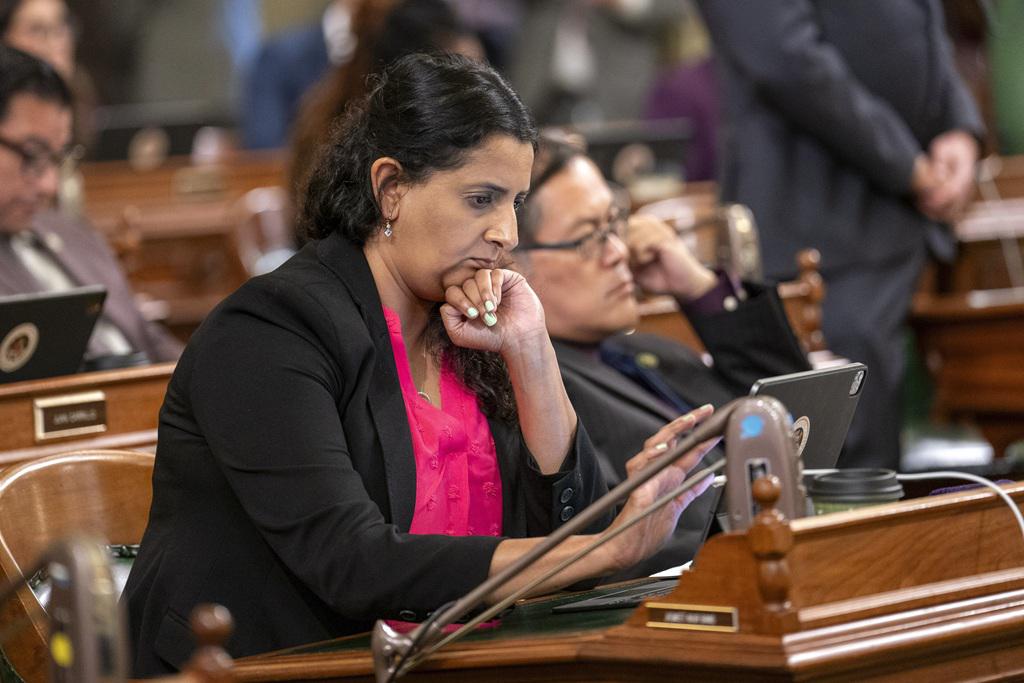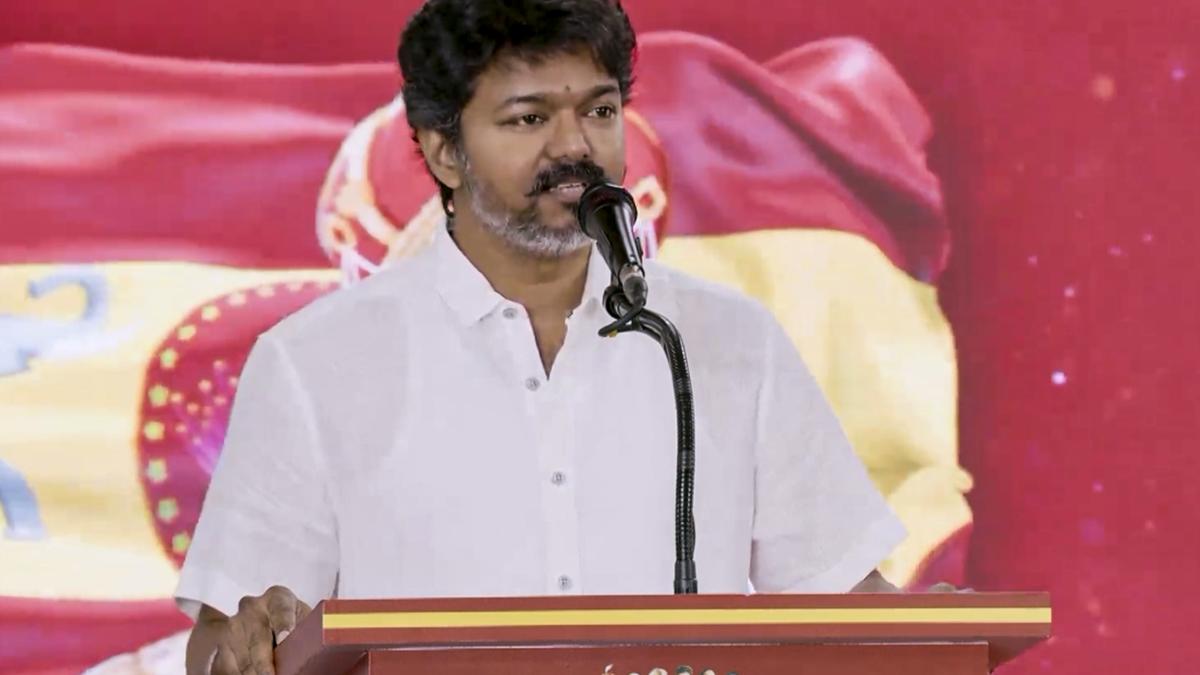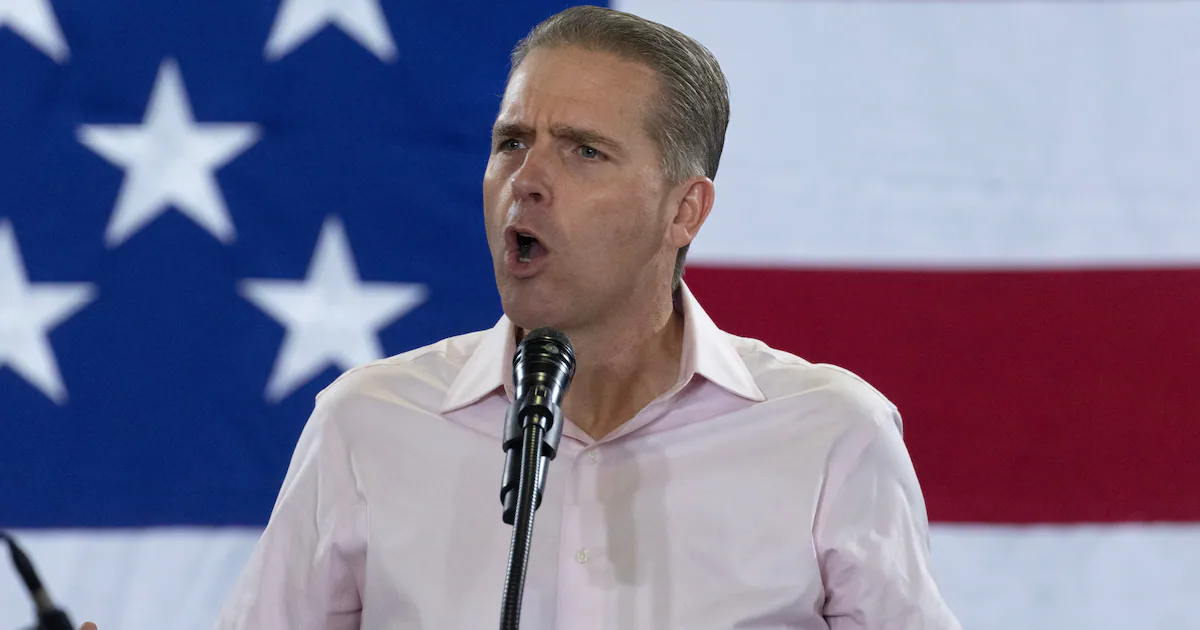By David Dayen
Copyright prospect

A Democratic congressional challenger in a key swing House district in California likened an ad from her primary opponent about her corporate donors to “political violence,” in an early sign of the potential fallout of Charlie Kirk’s murder on campaign rhetoric.
Dr. Jasmeet Bains, a state assemblymember who is running in California’s 22nd Congressional District, made the comment in a Facebook post after a fellow Democrat running for the seat, a college teacher and auto repair shop owner named Randy Villegas, released an ad criticizing her corporate contributors. Both Democrats are challenging Rep. David Valadao (R-CA) in a Central Valley seat that will be very competitive, whether California voters pass new congressional maps or not.
“My opponents, Democrat and Republican alike, have taken hundreds of thousands of dollars from the same corporations that are ripping us off, making our health care, housing, and groceries more expensive,” Villegas says in the ad. Bains is not mentioned by name, but her image appears.
Campaign finance disclosures compiled by the Working Families Party, a supporter of Villegas, which the Prospect verified, show that both Bains and Valadao have indeed received direct contributions or corporate PAC donations from the same 53 corporations, including AbbVie, Amazon, Anheuser-Busch, AT&T, Bayer, BNSF Railway, Charter Communications, Chevron, Comcast, Eli Lilly, Exxon Mobil, Google, Honeywell, Johnson & Johnson, KPMG, McDonald’s, Merck, Paramount, Pfizer, Phillips 66, Sempra Energy, Southern California Edison, Union Pacific, UnitedHealth Group, Walmart, and Waste Management.
These companies donated at least $258,600 to Bains throughout her State Assembly career, while donating over $1 million to Valadao in his congressional campaigns. Bains, who entered the CA-22 race in July, has not disclosed her federal donations yet because the quarter is not over.
Hours after Villegas released the ad on September 18, Bains posted a message to Facebook that began: “As political violence increases in America, I myself have experienced a heightened level of it.” Bains then alleges that she, a woman of color, is being attacked because of her identity. (Villegas, incidentally, is Mexican American.) “What gave a man the permission to resort to spreading lies just because his campaign is going nowhere,” Bains wrote, using the word “lie” four times without articulating what the lie was. She was only referred to in the ad in the context of her political donations, which are public and documented.
Bains followed this up with two other Facebook posts expressing anger over being called out with what she claims are “lies,” while highlighting her own work providing health care and claiming that any attack on her is “an attack on all healthcare providers.” In one post, she writes, “Throwing punches at me makes you look ridiculously phony especially when you have nothing in your resume that could match up to half of what I’ve done.”
As a Sikh woman, Bains has experienced online attacks on her race and religion in the past, but the flurry of Facebook posts came directly after the ad and referenced her primary opponent. The campaign did not respond to a direct question about whether she was associating criticism of her campaign donors with political violence, in the wake of Donald Trump’s attempts to cancel journalists and late-night talk show hosts who criticize him.
A Bains campaign spokesperson responded to a series of questions from the Prospect with this statement: “Dr. Bains has a strong voting record focused on solving California’s cost of living crisis and increasing access to health care. That is why she is the only Democrat in the race that can flip this seat blue, and the polling and support from her community proves it … the Valley needs fewer candidates that talk and more candidates that win.”
THE 22ND DISTRICT COVERS LOTS OF FARM COUNTRY and several oil and gas sites in the center of California. It is over three-quarters Hispanic, and the median age is barely over 30. CA-22 has a poverty rate of almost 23 percent, more than twice the national average, and one of the largest populations on Medicaid of any congressional district in the nation.
Despite this favorable demographic set for Democrats, Valadao has been representing the area since 2012, save for one two-year term in 2019-2020. He won back the district in 2020 despite Joe Biden defeating Donald Trump there by 13 points. Now, Valadao’s vote for the GOP mega-bill that cuts Medicaid by nearly $1 trillion, after initially saying that Medicaid cuts were a red line, has threatened his re-election hopes.
Valadao’s opponents have largely resembled the kind of frontline challenger the Democratic Party is comfortable with: centrist and corporate-backed. This hasn’t exactly touched off a flood of engagement in politics: The district is marked by catastrophically low turnout, barely scratching past 100,000 votes in the last midterm election in 2022, with 113,000 in 2018 and only 79,000 in 2014.
Villegas got into the race in April promising a different approach. “I’m running because I’m fed up with the status quo of politics we’ve seen,” said the son of Mexican immigrants who worked at swap meets and the family auto repair shop growing up. Like Bains, he also has an advanced degree—his Ph.D. led him to become a political science professor at the College of the Sequoias, a community college in Visalia, while also running the auto shop.
In the second quarter of 2025, Villegas raised a healthy $250,000 from over 4,000 individual donations. He rejects the idea that frontline candidates must move to the right on a host of issues to win in purple districts, instead foregrounding an economic populist message. “This is not a fight about left vs. right, this is about bottom vs. top,” he said, connecting the Democrats’ loss of working-class voters with the way in which money has overwhelmed politics and how elected officials have been bought off. “If you look on paper, this should have been a Democratic seat a while ago, but nobody’s giving them a reason to vote for them.”
In an interview, Villegas repeatedly highlighted rejecting corporate PAC money, taking on monopolized sectors like the agriculture industry in his district, and standing with workers and residents over special interests. He aligns with the spurt of working-class candidates running in difficult races this year; his campaign video was made by the same group behind Graham Platner, the Senate candidate in Maine, and Dan Osborn, the independent Senate candidate in Nebraska. The Working Families Party has described Villegas as a top priority for 2026.
“Tell me who you’re with and I’ll tell you who you are,” Villegas said, referring to a slogan that his mother often said. “Tell me who you’re taking money from, and I’ll tell you who you support.”
When he got in, Villegas didn’t know he would be thrown into a battle for the soul of the Democratic Party. But the entry of Bains, a physician, has created that dynamic.
BAINS WAS SEEN AS A BIG RECRUITMENT WIN for the Democratic establishment when she announced in July. She quickly received a number of endorsements from three statewide officers, eight members of the California House delegation, and two labor unions (SEIU California and the electrical workers’ local in the region) upon entering the race.
This is despite, or maybe because of, Bains being among the most conservative Democrats in the legislature during her two terms in the State Assembly. Most notably, she was the only Democrat to vote against an oil price-gouging law in 2023, losing her committee assignments as a result. “The bill was to address price-gouging of consumers,” Villegas said. “It shows disrespect for working-class people who are struggling.”
It was not the only pro–oil and gas vote Bains has taken. Several oil companies drill in the Kern County section of Bains’s district. She received a maximum donation from the Western States Petroleum Association PAC shortly after the price-gouging vote, and accepted $54,000 from oil and gas interests in 2024.
The corporate coziness doesn’t stop with Big Oil, even on issues of affordability that will likely dominate the campaign. Bains voted against a bill to limit corporate landlords from owning more than 1,000 single-family properties. She voted against stronger tenant protections. She voted against giving the state attorney general authority to block private equity purchases of medical providers. She voted against disclosure of pesticides on pretreated seeds sold in California. She voted against requiring employers to create a workplace violence plan. And separately, she recently voted against ACA 8, the bill that put Prop 50 on the ballot to rewrite congressional maps in reaction to the attempted Republican gerrymander in Texas and elsewhere. (The new CA-22 map would be slightly more friendly to a Democrat but still quite competitive.)
In addition, Bains chose not to vote at least 40 times, which in the California legislature is partially akin to a no vote. These skipped votes include a recently signed law barring ICE agents from wearing masks, a law requiring notification for pesticide use near school locations, and a law banning a type of cancer-causing chemical known as PFAS in consumer products (on this bill, she initially didn’t vote, but supported the bill on final passage). Villegas took particular umbrage at the lack of support for the ICE masking bill, considering that he has family members who are undocumented.
Money, like the 53 corporate PAC donations to Bains that mirror contributions to Valadao, sits behind these votes, Villegas argues. “Politicians like my opponents are bought and paid for,” he said.
Though the expectation is that the establishment has lined up for Bains, Villegas claims the situation is different on the ground. He touts the support of the three county central committee chairs in the district (Kings, Tulare, and Kern), and if Prop 50 passes and the district extends to Fresno County, he would have that party chair’s support as well. Rep. Ro Khanna (D-CA) has endorsed Villegas as well.
“We’re going to move working-class voters,” Villegas said. “We’re going to get young people to vote when they’re so disillusioned. It’s OK to have disagreements within the party. It’s OK to have different policy priorities. But we have to decide, are we going to be party of the working class or the party of billionaires?”



